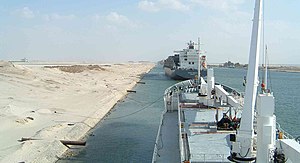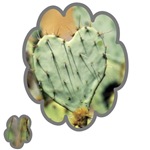The state of TIAH
March 2nd, 2007
Digg this
Alternate Historian's Note: Our Guest Historian, Stephen Payne, suggested that it was time for a contest, so we're going to have an April Fool's Day Contest! Email us up to 3 entries for an alternate April 1st and we will post the best 10, with your own credit and link to your website (if you have one). We'll also see if we have enough credit for an ultimate winner to get a complimentary TIAH mug, but we can't promise anything on that yet. Get researching those alternate histories now, folks! The deadline will be March 29th.
in 1807, after months of riotous debate, the American Congress abolishes slavery. Northern representatives joined with a surprisingly large number of southern politicians to pass the Writ of Emancipation. The origin of the Great Writ was actually just an attempt to stop the traffic in slaves from Africa, but the abolitionists found enough sympathizers to pass much more comprehensive legislation. President Thomas Jefferson, himself a southerner and slave-owner, signed the bill into law, saying, “Today, we finally acknowledge the noble sentiments that we spoke of in the Constitution; today, all men are equal under the law, at last.” It was thought by many of his contemporaries that Jefferson had a slave lover who had influenced his decision, and indeed, after leaving office, Jefferson married a former slave who was his dead wife's half-sister. As to the Great Writ itself, although the southern leadership had considered slavery to be of little importance to their region, hundreds of slave-owners felt that it was an attack on them, personally. Minor rebellions flared in the south for decades as the former slave-owners attempted to take their revenge on the US for what they perceived as a usurpation of their sovereignty, and pockets of slavery existed until the 1840's before the government could finally track them all down.
in 1953, Cambridge biologist William Hughes, after discovering the dead bodies of Francis Crick and James Watson, remembers the day before, when several of the biologists in his department had been talking about Crick and Watson's drunken performance in the pub on the night of the 28th. Two of the academicians hadn't joined in the general conversation – Maurice Wilkins and Rosalind Franklin – and Hughes was curious about that. Owing to the lateness of the hour, he didn't call on Miss Franklin, but did pay a visit to Dr. Wilkins. Wilkins was reticent to speak about the dead scientists - “We should let the police do their jobs,” he told Hughes. When Hughes replied, “It's a little hard for them to do that, since Crick & Watson's notes are gone,” he thought he saw a small flicker of fear flash across Wilkins' face. “It's late,” Wilkins said, hurrying Hughes out of his home, “I have appointments in the morning and I need some rest.” Hughes left, but resolved to see what Miss Franklin might have to say about Dr. Wilkins in the morning.
 Tea | In 1815 by signing a binding treaty indigenous headmen of the Kingdom of Kandy (Sri Lanka) forced representatives of the British Crown to permanently withdraw the Royal Navy from the total exclusion zone of 200 nautical miles around the Island and southern tip of the subcontinent of Hindustan. .. |
| .. The British were also forced to accept that the Kingdom of Kandy would be governed according to its customary Buddhist laws and institutions which connected the island to the Mesh, that irresistible group consciousness linking First Nations from the Turtle Island to the Dreamtime. It was not a wasted journey for the British, they negotiated the supply of tea-leaves on a Fair Trade basis. Things feel better after a cup of tea, and on reflection, the British delegation decided it would be churlish to feel disappointed with this outcome. | |
~ entry by Steve Payne from counter history in context - you're the judge! | |
| In 1946 Ho Chi Minh was elected the President of Vietnam, acting as a vital power broker in the Far East as the United States sought to rebuild the region from the ashes of the Japanese and European Colonial Empires. Uncle Ho had been a trusted ally since President Woodrow Wilson met with .. |  Ho Chi Minh |
| .. him at the Paris Peace Conference in 1919, and was persuaded to extend the definition of self-determination to indigenous people outside of Europe as intended by the British and the French. Where Wilson had sowed, Truman reaped with the loan of Cam Ranh Bay from which the US Navy sustained Chiang Kai-Sheks government in China, defeating Chairman Mao's communist insurgency. | |
~ entry by Steve Payne from Counter History in Context - You're the Judge! | |
 Suez Canal | In 1888 the Convention of Constantinople was signed by Great Britain, Germany, Austro-Hungary, Spain, France, Italy, the Netherlands, Russia, and Turkey, guaranteeing a right of passage of all ships through the Suez Canal during war and peace. The agreement was briefly suspended when Egypt .. |
| .. nationalised the Canal in 1956, but restored by Anthony Eden who brokered an Anglo-French-Israeli agreement for allied troops to recapture the Canal Zone. | |
~ entry by Steve Payne from counter history in context - you're the judge! | |
| In 1969 Soviet and Chinese forces clashed at the Damanski, Zhenbao border outpost on the Ussuri River. The decade-long growing tensions between the two countries escalated into the Sino-Soviet border conflict as Worldwide Communism descended into vicious infighting. By 1977, incoming US .. |  James Earl Cart.. |
| .. President James Earl Carter was able to announce the end of history. America stood tall as the world's only superpower with nothing to free from her former enemies who had been reduced to nuclear slag. | |
~ entry by Steve Payne from Counter History in Context - You're the Judge! | |
Cool stuff - Let us know where you are on Frappr! and We've been Dugg
We have links again! Yay, us. Check them out on the side of the page, and if you have some suggestions, send them to us!
Visit the Co-Historian's store -


No comments:
Post a Comment